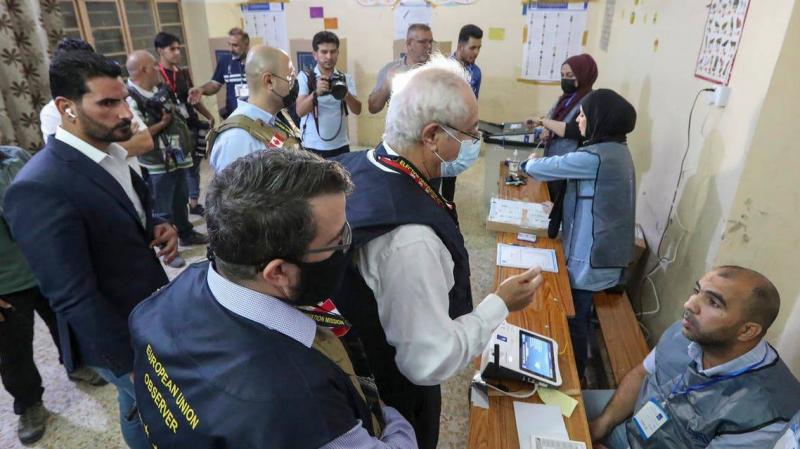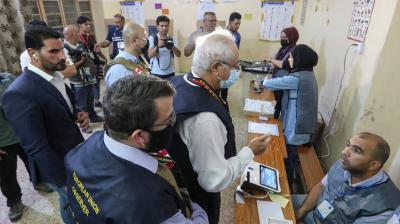With the preliminary turnout rates for the early parliamentary elections held yesterday in Iraq now revealed, the picture is becoming clearer regarding voter tendencies. According to the list announced by the Iraqi High Electoral Commission today, it appears that residents of Baghdad exhibited the least enthusiasm for participating in this electoral event. The turnout rates in Baghdad's Rusafa district were only 31%, while in Karkh they were 34%, which are relatively low figures, especially for the capital.
As the country is expected to gradually learn about the new (or returning) members of parliament in the coming days who will form a new government led by the bloc that wins the most seats, the Sadrist movement has begun preparations for celebration.
The so-called "largest bloc" was indicated late last night by a Twitter account associated with Minister Muqtada al-Sadr, who is close to the prominent Shiite cleric in the country, stating that candidates from the Sadrist movement would form the largest bloc. He wrote in a tweet, "Get ready... to express your joy at being the (largest bloc)... in a way that pleases God and does not disturb citizens... so wait for the confirmed news... and the final date."
This tweet followed Sadr's confirmation that the elections were held with great success from both security and professionalism perspectives. He tweeted, "We promised you early elections, and we have kept our word, and here they are passing by with great success." He also thanked those who were involved in this electoral event, the voters, and those he described as "lovers of reform."
It is noteworthy that the parliamentary elections held in Iraq yesterday witnessed a lower turnout than usual, which indicates a diminishing trust in the parties and the democratic system established after 2003. It is expected that the current ruling elite, which has the strongest parties with armed wings, will dominate the elections. Furthermore, there are predictions that Sadr's bloc will secure the largest number of parliamentary seats.
In this same context, Iraqi officials, foreign diplomats, and analysts have indicated, as reported by Reuters, that the election results are unlikely to significantly alter the balance of power in Iraq or the broader region, but they may signify to Iraqis that Sadr will increase his influence in the upcoming government.




